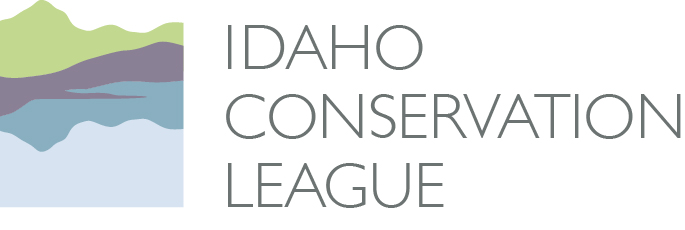Editor’s note: This posting was authored by Pat Ford. Many years ago, Pat served as the executive director of ICL. Most recently, he was the executive director for Save Our Wild Salmon Coalition. Pat lives in Boise, Idaho, and periodically contributes to the ICL blog.
The passage of climate change across our state and lives will outlive every Idahoan here today. Start there as we think now about what to do. At best, 15 or 20 years from now, we will have built up a good soil so Idahoans to follow can do better than we will.
This means climate work in Idaho today needs vision. We have to talk to our future, and to the years beyond which we here now can only hope to serve as good compost. We must set stars to steer by, even knowing we will be wrong as often as right.
This passage will also be a democratic event, in two ways. Everyone in Idaho will be much affected, and, though we might not think so now, everyone in Idaho will have and insist on having her and his say. This includes all those, now and to come, who "do not believe in climate change."
Second, governments and policies will not get us through climate change. We can seek that they help, but we can’t bank on it, or mistake changing government policies for the deeper job. Individuals, families, communities, businesses and institutions, in part by policies but mainly by practices, will in the end do most of the human work.
So though not true in all cases, I think it is largely true that good climate change practices and policies will evolve in Idaho only as a good breadth of Idahoans understand and support them. Creating that breadth, leading it into existence, is a main purpose for climate work today.
Most climate work in Idaho will be nonhuman, done by lands, waters, and their life. Life, in Idaho as elsewhere, will apply its self-organizing genius to weathering and thriving through climate change. Odds are that the closer Idahoans align our work with that nonhuman work the better we will do, but to do so we will need to look more closely and steadily at the nonhuman Idaho than we now do. Human and nonhuman are not separate sealed compartments, but the second is the originating matrix for the first.
Climate change’s passage will be humbling. Our predictions will be wrong, our pieties challenged, our rules and regulations insufficient. Lands and waters will go places we don’t like or want without waiting for our input. There is much talk now of the Anthropocene, the era Earth is posited to have entered in which humans have taken or take charge of it. I would be less skeptical about it if humility were prominent in the talk.
These features of climate change-its long haul, the democratic foundations of durable human response to it, nonhuman life’s active powers to shape its course, the humility it asks of us-are, I think, basic design principles for Idaho’s response to it today, and for leadership of that response. What we do is important, but I defer that subject for now except to note again we will be wrong as often as right. So how we do it, how we lay the keel for a long trip none of us will survive, is equally important.
I suggest three wise men for hard thinking about the how and what of climate change response: farmer Wendell Berry, scientist James Lovelock, and naturalist John Hay.
– Pat Ford

